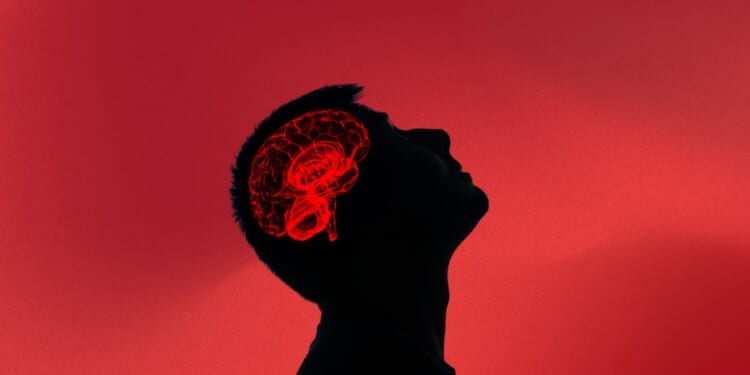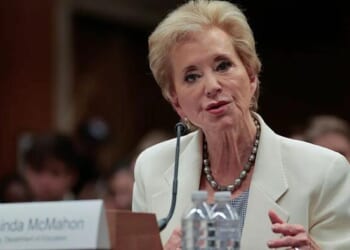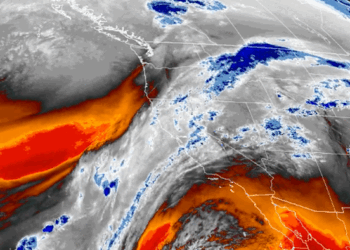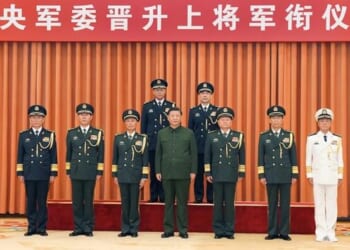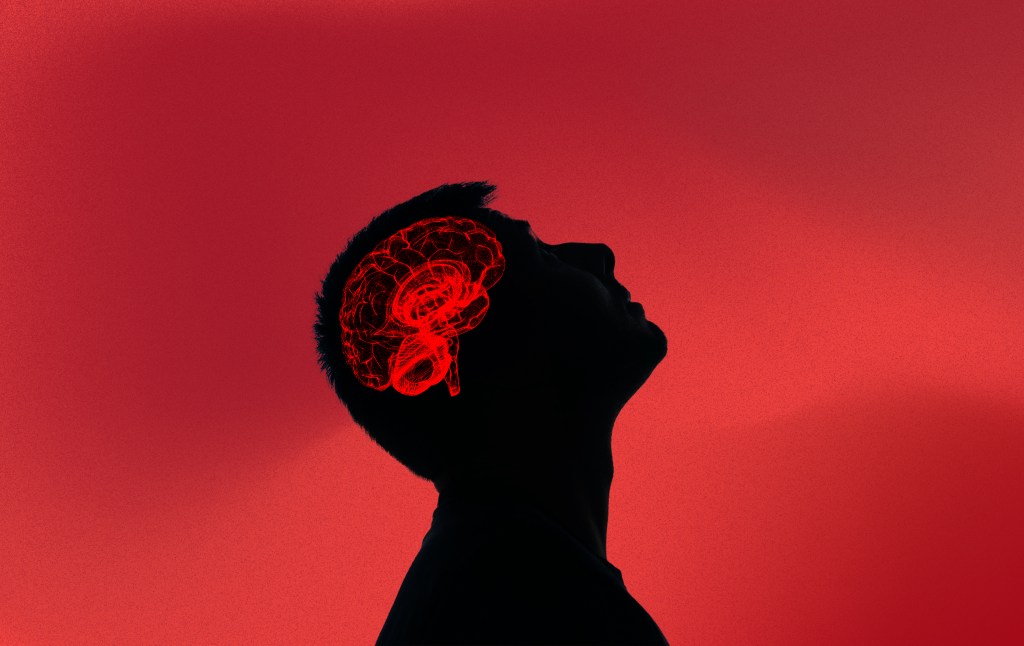
Steve Farina spends many mornings dipping a paddle in the Alouette River. He’s alone on the water, and it’s here, as herons circle for fish and morning haze scrapes the Golden Ears mountain, that he does the quiet, internal accounting of life. Kayaking’s become a sacred ritual for him, a way to decompress after three decades of firefighting in British Columbia.
“I’m watching the sunrise on the river and I just needed …” he says, choking up. “I’ll be honest with you; I had a few cries on the river. I’m just reliving it, like g-dd-mn.”
Firefighters love their “salty old captains,” the rough-around-the-edges types. It’s a culture that fosters emotional detachment, which, Farina believes, is essential when properly balanced. “You gotta be strong, you gotta show up,” he says of the mindset. “If you are going to a call and it’s someone’s worst day, you have to be operational, you have to be stoic.”
But picking up the pieces after those dispatches is hard. Farina remembers “some really sh-tty calls involving kids and stuff like that.” After those calls, he’d grab a coffee and a sandwich, “load up my kayak and head to the river, first thing.”
Before he discovered kayaking, he coped with the stress like many other guys do: by bottling up his feelings. He filled up his “backpack,” as he calls it, with a lifetime’s worth of traumatic calls without ever taking it off. It got to the point where he became his “own worst enemy”—the “helper who was helping everyone else and just stuffing my sh-t down.”
“I basically had to take a knee [when] I realized that it had caught up to my life,” Farina says. “The work and all of the sh-t that I’ve been dealing with, all the calls. And I said, Enough is enough. I’m not showing up the best version of myself, for my daughter, and for my friends and for my family.”
When men can’t get the help they need, they often leave a trail of devastation in their wake. Men represent nearly 80 percent of suicide victims and live roughly six years less than women, driven in part by more risk-taking behaviors, higher rates of smoking and drinking, and lower rates of visiting doctors. They make up the majority of overdoses and the homeless. Google “deaths of despair” and the image results are mostly shadowy images of lonesome men, many with their heads buried in their hands.
Matt Englar-Carlson is a counseling professor at California State University, Fullerton, and founder of the university’s Center for Boys and Men. He spent his childhood bouncing around America, following his dad’s jobs and academic postings.
He swam in the academic currents of his father, psychologist Jon Carlson, and his colleagues. There was the background hum of the mythopoetic men’s movement, a group of self-help guys reconnecting with wilderness rituals and Jungian psychology. In 1991, there was American philosopher Sam Keen’s book, Fire in the Belly: On Being a Man. The intellectual richness of his childhood gave him an early curiosity about masculinity.
“Oh, this is how boys are supposed to act,” he realized in elementary school. “I recognize if I cry, there’s a penalty for that.”
These impressions stayed with him through university, first as an undergrad in California and then as a doctoral student at Penn State. He kept seeing the same patterns among the young men walking through his clinic doors in the early days of his career. Untreated, long-term depression. Anxiety. Rough breakups and spiraling, chaotic personal lives.
During his training, Englar-Carlson noticed an emphasis on highlighting problems without solutions, which grated against his embrace of positive psychology, a view that seeks to leverage one’s strengths to maximize personal flourishing. “I was beginning to have this discomfort with the research,” he said. “For the most part, psychology is not about mental health; it’s about mental illness, and we don’t really talk about health.”
This approach failed to recognize that many men came to therapy from a place of shame. He’d seen enough guys walk into his practice “hanging his head like a dog who knew he did something wrong.” How some were discussing men would only make guys less comfortable coming forward, he said.
“We have a huge amount of research that is cataloging all the ills that men do,” he added. “It catalogs the dark side of masculinity, so much so that if you become steeped in this research and you understand it, you kind of wonder where the light is.”
Fred Rabinowitz is roughly a dozen years older than Englar-Carlson. He grew up in a Jewish home outside Philadelphia and remembers a childhood spent “around men and boys all the time.” There was his mom, but there were also sports, brothers, dad, and poker. His closeness to guys left him with a particular insight: There was a quiet crisis that few cared to understand.
“I ended up realizing that a lot of guys are hurting. A lot of guys are not as emotionally stable or maybe just not able to communicate what they’re experiencing and feeling,” Rabinowitz said.
He decided to dedicate his life to studying men’s mental health. In the early 1980s, he went to the University of Missouri to study counseling psychology and teamed up with a fellow grad student, Sam Cochran, to run a men’s therapy group. In 1995, the American Psychological Association (APA) formed Division 51, dedicated to researching men’s mental health. Rabinowitz soon joined as a member.
Rabinowitz eventually became a psychology professor at Redlands University outside Los Angeles and was elected Division 51 president in 2005. The following year, he was approached by the Division’s co-founder and first president, Ronald Levant, who helped shape one of the foundational indices still used today to measure “traditional masculine ideology,” better known as TMI.
Levant said he’d gotten some funding from the APA to create the association’s first-ever guidelines on boys and men. Was Rabinowitz interested? Englar-Carlson soon joined, and the two became part of a team, alongside Levant and a handful of other Division 51 members, who plugged away for a dozen years on the document.
Released in January 2019, the report received significant pushback. It’s peppered with dense academic terms—“hegemonic masculinity,” “precarious manhood,” “gender role strain”—and was accused of minimizing biological explanations in favor of a view that emphasizes socialization and upbringing.
Although some of the most controversial quotes were misattributed to the guidelines—instead coming from the press release announcing the guidelines—the media buzz confirmed for many Americans that men were being held to an unfair standard by the very professionals responsible for their care; that masculinity itself was under direct attack.
Englar-Carlson was frustrated by accusations linking the report to the concept of toxic masculinity. Although the guidelines don’t use the phrase, many critics saw it as a semantic smokescreen, a hasty attempt to airbrush the document’s thrust. The blowback ultimately prompted Division 51 to publish a clarification.
“They’re not for general consumption and they’re not necessarily to be applied to the average guy walking down the street,” Englar-Carlson said of the guidelines. “ But I would say it’s like the guidelines don’t say traditional masculinity is wrong. Because, honestly, that’s not what the research says … But again, you have to have nuance to read it and I think the guidelines probably could have made that more clear. On that, I think that’s totally true.”
Rabinowitz remembers playing poker at a casino when he looked up from the table to see a mounted screen showing talking heads debating the guidelines. It was a surreal experience. The report was written for a clinical audience, but it had escaped the lab and now became fodder in America’s culture wars.
Newspapers and media were saying that American psychologists thought masculinity was bad for guys. Within weeks, Gillette released a viral ad on “toxic masculinity,” showing men indifferent to violence and sexual assault. The commercial became an instant target for pundits: Joe Rogan and Theo Von made fun of it, and Piers Morgan denounced it. Fox picked it up. Jordan Peterson and Jocko Willink condemned it.
The controversy opened a schism in Division 51, pitting its foundational ethos against a budding movement of male-positive researchers.
“I think that the original men’s movement came out of feminism,” Rabinowitz said. “There’s a sense that I think for some guys, for some psychologists, that they owe their liberation to women’s liberation; that women broke free from their roles, which allowed men to break free from theirs.”
Rabinowitz, generationally, came more from this camp and spent his early career critiquing masculinity as a means of empowering guys to discard harmful behaviors. From this perspective flowed a vastly different model of what a man should be, how to best reach guys, and what kind of support they need.
Helping men, this approach underscored, required highlighting negative behaviors in order to reform traditional masculinity. As Division 51’s founding mission statement outlined, the body endeavored “to erode constraining definitions of masculinity which historically have inhibited men’s development, their capacity to form meaningful relationships, and have contributed to the oppression of other people.”
Following the guidelines blowup, Rabinowitz began to worry that the field was seeding antagonism rather than empathy. Guys were increasingly seen as the authors of their own misery in need of tough love. He believes some of this was motivated by fear: Trump was in the White House, and the #MeToo movement had crested. Rabinowitz thought some feminist-inspired academics were fretting “a return to kind of male domination if men get their sh-t together.”
It was a soul-searching moment for him. A psychologist’s mission was to help their clients open up, and the guidelines touched a very raw fault line which went to the core of the field.
“I think that’s a tension: Some of the old guard still wants to use the feminist breakdown of social roles as the origin and the backbone of male psychology,” Rabinowitz said. “I’m more positive masculinity for sure; I’ve definitely moved in that direction—and I started in the other.”
“I’m looking for solutions now, not just the critique,” he added. “I don’t think the first perspective leaves you with anything. I think it leaves you with: There’s something wrong with me.”
In 2016, while visiting a local firefighter memorial on Vancouver Island, Farina was struck by all the names on the wall. Firefighters are at a much higher risk of cancer, and most of the names etched on that wall were taken by the disease.
A rookie on his team, Mike Paine—who’d survived testicular cancer—had become involved with Movember, the Melbourne-based charity that went viral in the 2000s by encouraging supporters to grow mustaches during November to raise money and awareness for prostate cancer. He asked if Farina would be interested in helping out.
“I was one of the early Mo Bros for sure,” Farina said. “I go back in my pictures, and I got a lot of creepy mustaches, man. My daughter hates it.”
Despite being happy to help other men, Farina resisted seeking support for his own issues until two doctors who ran a resiliency program for first responders told him he’d likely benefit from it. In 2019, he attended a retreat, and out there in the woods, surrounded by a brotherhood of first responders, something clicked.
“I went through the program and—dude—changed my life,” Farina said. “… I felt safe there. I also felt seen and heard, where I could be vulnerable, and I bawled my eyes out, man. I could cry without judgment and talk about sh-t that I hadn’t; stuff that happened to me—early childhood, adolescence, teenage years—that I’d never thought for a minute impacted me.”
The group that hosted the retreat, Blueprint, was founded in 2015 by David Kuhl, a medical professor at the University of British Columbia and chair of men’s health, integrity, and well-being at Vancouver Coastal Health.
Kuhl first worked in palliative care during the HIV/AIDS epidemic in the 1990s. He remembers a young patient calling his father to share the news of his imminent death—and the father didn’t say a word. Just silence on the other end of the line. That pattern repeated: For some reason, Kuhl kept finding that kids were more estranged from their dads than their moms.
It got him curious about how fathers and men dealt with mental health. He’d seen the personal toll enough in his own family. His maternal grandfather committed suicide. His dad was bipolar. But his friends at school never knew what life was like at home. He kept that to himself.
After a decade in palliative care, Kuhl went back to school to study counseling psychology and began working with military veterans. He and another researcher wanted to bring their work beyond the military, and that’s when a friend of Farina’s flagged the issue of mental health among firefighters. Kuhl agreed to help, but insisted the program be “evidence-based” and measure the treatment’s efficacy. The results “exceeded our expectations,” he says.
Kuhl has since found that guys can respond well to wilderness retreats and group therapy. “The essence of spirituality for men is often cultivated in nature,” Kuhl said. “It’s also action-oriented. We get the participants to talk about their lived experience in a way that’s very safe, and we ensure that we talk about the positive features of who they are before we talk about the challenging features of their lives.”
That refreshing perspective is slowly making inroads. In 2022, Division 51 updated its mission statement, shifting its emphasis away from criticizing masculinity. It no longer strives to “erode constraining definitions of masculinity which historically have inhibited men’s development” and ditched its earlier acknowledgement of the field’s “historical debt to feminist-inspired scholarship on gender.”
Several of the body’s latest presidents, including Daniel Ellenberg and Brian Cole, have embraced positive masculinity. Cole specifically credited one of Englar-Carlson’s papers with changing his life.
It can still feel like an uphill battle, though. Men’s Health Week, traditionally celebrated ahead of Father’s Day every summer, frequently goes unnoticed by major media and political figures, a nonevent unworthy of the public’s attention. (The Trump White House was one of the rare voices commemorating the event—and did so partially by denouncing the “vicious campaign against masculinity.”) International Men’s Day on November 19 wasn’t mentioned by the United Nations: The international body instead used the occasion to raise awareness for World Toilet Day.
The politicization and disregard of men’s health is a disservice to boys and men. Their struggles —loneliness, substance abuse, suicide—“have been happening for a long time,” Englar-Carlson said.
“We just had our heads in the sand,” he added. “It’s time for us to shift the narrative in terms of how we’re gonna talk about it. And let’s actually start by talking about it. I think that’s part of what I try to do more than anything.”

